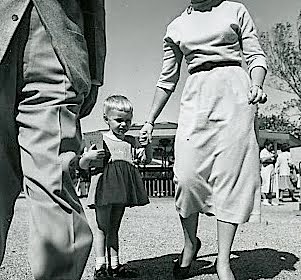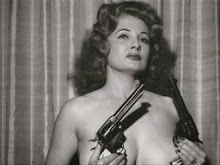
In our last class, some students asked that I post the first essay assignment now, although we haven't yet begun to explore The Turn of the Screw to any great degree. I think that's a good idea, too, because we can use the questions posed in the assignment to guide our discussion in the coming weeks.
Discuss Henry James' novella, The Turn of the Screw as an instance of the Freudian Uncanny. Can you see similar or parallel elements in this narrative to those Freud finds in "The Sandman" and his further definitions of the category, "das Unheimlich," in his essay?
Think about how Freud investigates the Uncanny. He describes many features of this estranging effect; his discussion of the concept centers on examples of doubling, repetition, ambiguity, above all the unfamiliar face of the familiar. His first move in his essay is to demonstrate the unheimlich hidden in the heimlich: the uncanny in the "home-ly." In this way he connects the Uncanny with the return of the repressed:
"It may be that the Uncanny (the 'unhomely') is something familiar ('homely', 'homey') that has been repressed and then reappears, and that everything uncanny satisfies this condition...I believe that it...can be traced back every time to something that was once familar and then repressed..."
Freud also associates the Uncanny with Oedipal anxiety; he pays particular attention to "The Sandman" as a story about Fathers and Children.
What is the return of the familiar, the homely in The Turn of the Screw? The unfamiliar familiar? The hidden familiar? Family and familiar share the same root and indeed a family, a displaced and disrupted family is at the heart of The Turn of the Screw. We have two children and three sets of parents----the children's biological parents, the surrogate parental couple of Jessel and Quint, and the Master and the Governess. Four of the six are dead; of the two living, one has abdicated his (legal, biological) position entirely and given the other an absolute authority. The Governess is The Father in this case.
Also consider the way this "coupling" of characters sets up patterns of repetition and doubling: Quint/the Master, Jessel/the Governess, the Governess/Quint. Although the Governess's story is premised on a clear distinction between Good and Evil, the various similarities in situation and activity between the Governess and the Ghosts blur those lines and render motive and meaning ambiguous.
Finally, this is a story established at the beginning as one which "won't tell, not in any literal or vulgar way." In other words, this is a story of suggestion rather than revelation, of "evidence" that can be construed in multiple directions, of questions that can be entertained but never assigned a final answer. Literary critic J. Hillis Miller commented on The Turn of the Screw, "The words on the page work infallibly as speech acts forcing the reader...against his or her will, to "read into" the words meanings that are not there. The reader will fill the blanks out of his or her imagination and so be responsible for whatever evil thoughts he or she may have."
This assignment should be very simple on one level and very challenging on another. Think of this first paper as a trial run: a place to “try out” some of the ideas we’ve been talking about in class, a place to try out new ideas and observational skills. Think about how Freud's essay illuminates James's novella. Do not perform a literal and vulgar "Freudian" reading: i.e., do not attempt to "psychoanalyze" the Governess and "solve" her "case."
And don’t forget to title your essay. A title is one of the elements which distinguishes a piece of formal writing from an informal series of notes. Your title should reflect something pertinent to your discussion. "Paper One," "Essay," "Freud Paper," and the like are not adequate essay titles. Neither is the title of the novel you are writing about.
Length: 4 1/2 to 5 typewritten double-spaced pages.
All papers must be stapled or they will not be accepted.
Due: Monday, November 2


























































No comments:
Post a Comment